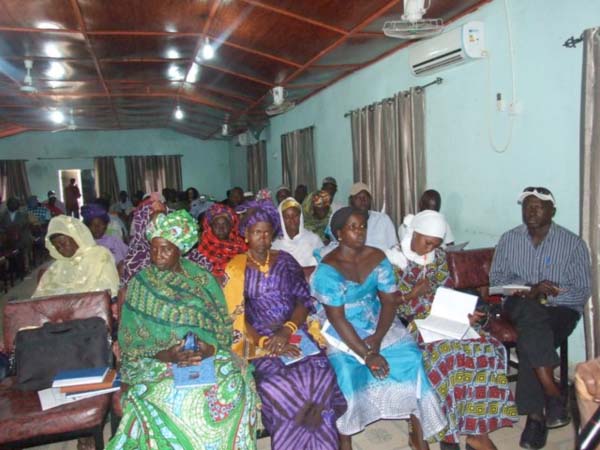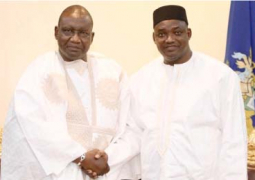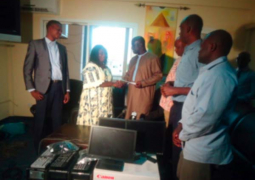
For
Gambia to enhance food security, agricultural strategies and project
implementation must be linked to attain food security and reduce poverty, the
Agriculture Ministry’s permanent secretary Sait Drammeh said.
“Enhancing food security will take [a] national vision and local action,” he told the 2016 Nema project consultative forum on Wednesday at Jenoi, Lower River Region (LRR).
The National Agricultural Land and Water Management Project (Nema), which phases out in 2019, seeks to support increased agricultural production, improve farmers’ income, expand rural employment, and reduce food insecurity and rural poverty.
Speaking through a representative, Mr Drammeh said the annual forum should be a standard practice for all projects because it serves as a platform to share progress, challenges and solutions.
Abou Njie, deputy governor of LRR, said the forum has built on last year’s challenges for the 2017 work plan.
Nema Project director, Momodou Gassama, said it is important for the participants to contribute fully in the sessions to further the implementation process of the project.
He said more of the work of the Nema project would continue along providing access roads to rice fields, constructing water retention dykes in rice fields, markets among other interventions.
The Nema project is designed to build on the achievements and experiences of earlier IFAD-supported projects in the agricultural sector.
The total cost of the project is $84.1 million with IFAD financing up to $39.4 million, making it the IFAD’s biggest single intervention.




